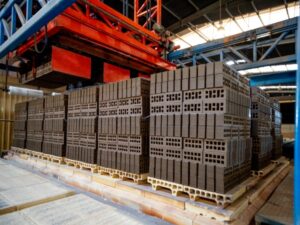The South African government is actively pursuing innovative funding mechanisms to enhance infrastructure financing and delivery. These measures aim to optimise the infrastructure value chain, improve efficiency and attract private sector participation. Leading consulting engineering and infrastructure advisory practice Zutari is seeing an uptick in local projects following the ‘2024 Budget Review: Public-Sector Infrastructure and Public-Private Partnerships Update’ released in February by National Treasury.
“There are projects coming to market to which we look forward to securing and continue to serve South African and international clients. Having successfully tendered for government work in the past, hopefully we will be one of the consulting engineering firms that continue to sustain and grow the economy through the work we do,” comments Vishaal Lutchman, MD, Transport at Zutari. The power sector is being unbundled to allow for increased private sector involvement, while the second major area of reform is around rail and port infrastructure. The concept of a landlord model was postulated many years ago. With the current slip in operations, it is under reconsideration as a solution whereas it was resisted in the past. The corporatisation of the Transnet National Ports Authority and establishment of the Infrastructure Manager are two long-awaited reforms. “I am, however, cautious that the factors driving the decision to reform masks failures in the two ecosystems that will not be addressed in the transition, giving exposure to downstream risks,” warns Lutchman. This comes in the wake of the announcement of a three-year R943.8 billion infrastructure investment programme involving State-owned companies, municipalities and provincial and national government. Spending on buildings and fixed structures will increase by an average of 15.9% during this period. “Investing in infrastructure is critical for South Africa’s economic development and social progress,” highlights Stephan Jooste, MD, Management and Sustainability at Zutari. “Infrastructure investment has been shown to drive job creation, reduce unemployment and stimulate economic activity, particularly benefiting marginalised communities and redressing societal inequalities through improved services.” Therefore, it is imperative that South Africa find a way to stimulate infrastructure spending within a constrained public fiscus. Jooste points to several innovative funding mechanisms the government can draw on, including Public-Private Partnerships (PPPs), Infrastructure Bonds and Development Impact Bonds (DIBs). It can even explore crowdfunding platforms, leveraging its existing public infrastructure banks such as the DBSA and the IDC and encourage private impact Investing. “The solutions involve attracting private capital to support infrastructure development,” points out Jooste. Gazetted amendments to the PPP regulatory framework simplify procedural complexities, enhance the capacity to manage PPPs, establish clear rules for unsolicited bids and strengthen fiscal risk governance. The aim is to facilitate smoother PPP execution and encourage private sector involvement in critical infrastructure projects.The government is also looking to introduce new financing instruments such as infrastructure bonds and concessional loans. In addition, it is considering a flow-through tax vehicle for specific infrastructure projects, similar to trusts and other investment vehicles. A funding window for proposals under this new financing framework will be provided to public institutions.
The government is reviewing institutional arrangements and governance for catalytic infrastructure to fast-track infrastructure delivery. Clearer mechanisms for accountability, cooperation and coordination are being established. Functions are being consolidated to reduce duplication and inefficiencies, especially for blended finance arrangements. “What is positive is the direct focus on renewable energy, green hydrogen and downstream products to reform the South African energy system,” says Mareli Botha, Technical Director, Process/Mechanical, at Zutari. Though it is well-known that South Africa is attracting a lot of interest for green hydrogen production on an international level due to its excellent solar and wind resources, it has to be linked to the Just Energy Transition (JET). “How can we ensure that the correct parties gain an advantage from the change to renewable energy and green hydrogen?” questions Botha. Another issue is ensuring that the local environment and communities are not disrupted to produce a resource that will mainly be exported, at least initially, to Europe or Asia. This concern was addressed by emphasising the local manufacture of electric vehicles, improving the transmission network infrastructure and potential collaboration with neighbouring countries. If realised, these plans could significantly improve South Africa’s energy security, socioeconomic status and reduce unemployment. “No wonder there is so much interest in the strategy around how these plans will be executed and managed,” says Botha. Jooste hopes that the intended PPP reforms level the legislative and procurement playing field. He calls for a programmatic solution to streamline project development and bring opportunities to market at scale. For example, significant lessons can be learnt from the hugely successful Independent Power Producer Programme (IPPP). These include centralised procurement and leadership, standardised contracting, consistent deal flow and clear market communication. “We believe that similar programmes for other infrastructure sectors could go a long way to addressing the current hold-up on PPP deal flow,” stresses Jooste. “Mature PPPs take a lot of work on the public and private sector side. There is a level of maturity that needs to be inculcated,” adds Lutchman. He points to advanced economies like Europe, Canada and the US where PPPs are the order of the day. This is unlike Africa, where the issuing entity is often mired in issues of corruption and bad business practices. “By reforming the PPP procurement process to be more efficient, transparent and conducive to innovation, South Africa can attract increased investment in infrastructure development while ensuring that projects are delivered on time, within budget and to the highest quality and sustainability standards,” concludes Jooste.






